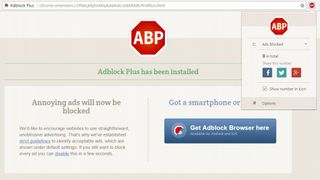AdBlock Plus originally blocked all adverts but ceased this in 2011 when they started its Acceptable Ads (opens in new tab) program, which whitelists advertisers if they agree not to use adverts which include pop-ups or other annoying tactics. AdBlock Plus makes almost all its revenue (opens in new tab) from charging large corporations to join their whitelist.
Is it just AdBlock Plus?
Other ad blocking companies, including AdBlock (not to be confused with AdBlock Plus) now use this whitelist since Eyeo, owners of AdBlock Plus, started selling it in 2015. The acceptable ads feature can be disabled by users, reverting to the old system of blocking all ads, but is activated by default and allows select adverts to be displayed to AdBlock Plus users. AdBlock Plus does openly state its acceptable ads program on their website, and the whitelist itself is even freely available if you can summon the will to read a 2000+ page list of website URLs. AdBlock Plus also claims that 90% of its acceptable ad licenses are given out for free to smaller entities, only charging large businesses to be added to the whitelist. Despite this, Senator Wyden is calling for the FTC to investigate the ad blocking industry and calls for more transparency with consumers. He specifies that companies should be forced to “prominently disclose” their whitelist information to new and potential users of their services. If you’re concerned about pop-ups and other invasive experiences on your internet browsing, we have a guide to the best spam filters (opens in new tab) on our site, and a look at the best internet providers (opens in new tab) for those looking for a change.
